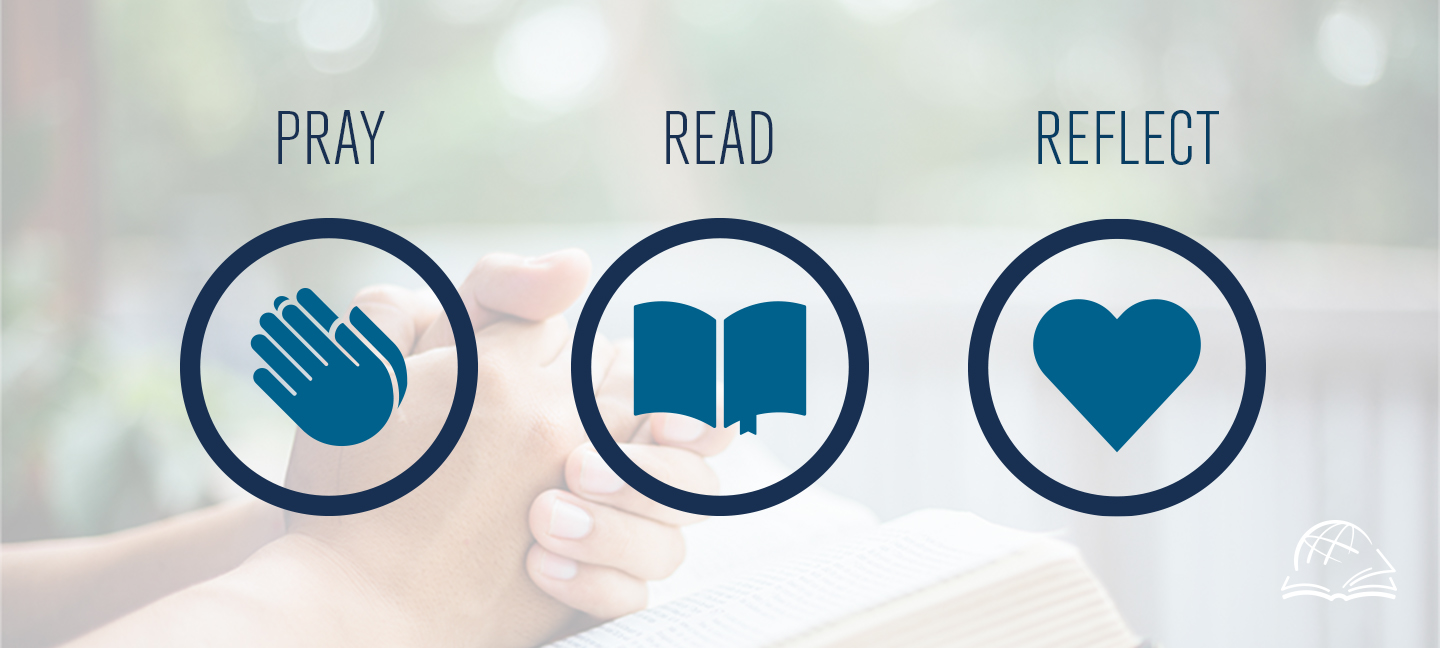Thru the Bible—1 ThessaloniansSample


As you journey through the book of Hebrews, we encourage you to invite the Lord into your studies through prayer, reading of the word, and reflection.
- Pray: Before you start each devotion, ask the Lord to use it to grow you up in grace and in the knowledge of our Lord and Savior Jesus Christ.
- Read: Invite God to open your eyes and deepen your understanding of His Word through each daily passage.
- Reflect: Ask the Spirit to help you take to heart what He wants to show you.
Faith, Love, and Hope


The apostle Paul, a great missionary, made it his pattern to start a church and then move on to new frontiers. With each group of young believers he left behind, he left a bit of his heart with them. Around A.D. 52 or 53, Paul wrote to the followers of Jesus Christ, a young church, in Thessalonica, a Roman colony. This was the first of all the wonderful epistles he wrote.
But things didn’t go easily for Paul there. In fact, a group of people opposed him and ran him out of town. His young protégés, Silas and Timothy, stayed behind to serve and then later caught up with Paul in Corinth. They brought questions from the church in Thessalonica. Paul wrote this first epistle to answer them, teach them, and offer some comfort.
Paul taught them Jesus Christ’s return for the church could happen any day. However, since Paul had left, some of the saints had died. Would these saints be in the rapture or not? Paul then grounds them in the basic understanding of what’s to come so that in expectation they would be prompted to live godly lives.
Many people today are curious about prophecy and love to argue about it; but really, prophecy should have a purifying effect in our lives (see 1 John 3:3). Does this hope of seeing Jesus at any moment get right down to where you are living? Does it change your life?
Paul begins all his letters with “Grace to you and peace from God our Father and the Lord Jesus Christ.” Grace comes first, followed by the peace of God. Both the grace and the peace come from God the Father and from the Lord Jesus Christ.
Paul is thankful for this church because they were an example to other churches. They modeled faith, hope, and love, three graces found in 1 Corinthians 13 and in all the Christian life. The past is the work of faith. The present is a labor of love. The future is the patience of hope. Look at how Paul fleshes them out in the lives of the Thessalonian believers: “How you turned to God from idols…”—that’s the work of faith; “…to serve the living and true God…”—a labor of love; “… and to wait for His Son from heaven” is the patience of hope (1:9-10).
Our work of faith is demonstrated to others when our soul responds to the Word of God. That’s walking by faith. When Paul first met the Thessalonians, he didn’t say, “Stop worshipping idols!” All he did was preach Christ. When they turned to God, they automatically turned from idols. They saw how repulsive the idols were compared to Him. When someone presents the Word of God to you and you believe it, the Spirit of God does a work in your heart.
These Thessalonians also were known for their “labor of love.” Labor and love don’t seem to fit together. But, when love motivates your work, it doesn’t feel like labor at all. Our love for God is expressed when we obey Him. Forget about being a “dedicated” Christian—instead, prove it by your love.
The Thessalonians also modeled “patience of hope.” After they had turned to God from idols to serve the living and true God, they also waited for His Son from heaven. That is our “blessed hope.”
What a wonderful trinity of Christian graces! It was the biography of the church in Thessalonica and can be the story of your life too. These are the abiding, permanent, and eternal features of the Christian life.

1. How could a better understanding of what is to come promote godly living in your life today?
2. In your own words, what do you think is the relationship between grace and peace?
3. To love someone is to labor for them. What labors can you undertake for God?
Additional Resources
Listen to Dr. J. Vernon McGee’s complete teachings on 1 Thessalonians Intro—1:2 and 1 Thessalonians 1:2, 3.
Scripture
About this Plan

When you feel like you’re losing hope, look to God. First Thessalonians tells us that’s the remedy for hopelessness. And if you’re losing joy, then pray without ceasing, rejoice in the Lord, and give thanks to Him in every situation. These seven lessons from THRU the BIBLE’s trusted five-year study, focused on 1 Thessalonians, will remind you of your hope in Christ and your future with Him in glory.
More
We would like to thank Thru the Bible for providing this plan. For more information, please visit: http://ttb.org









